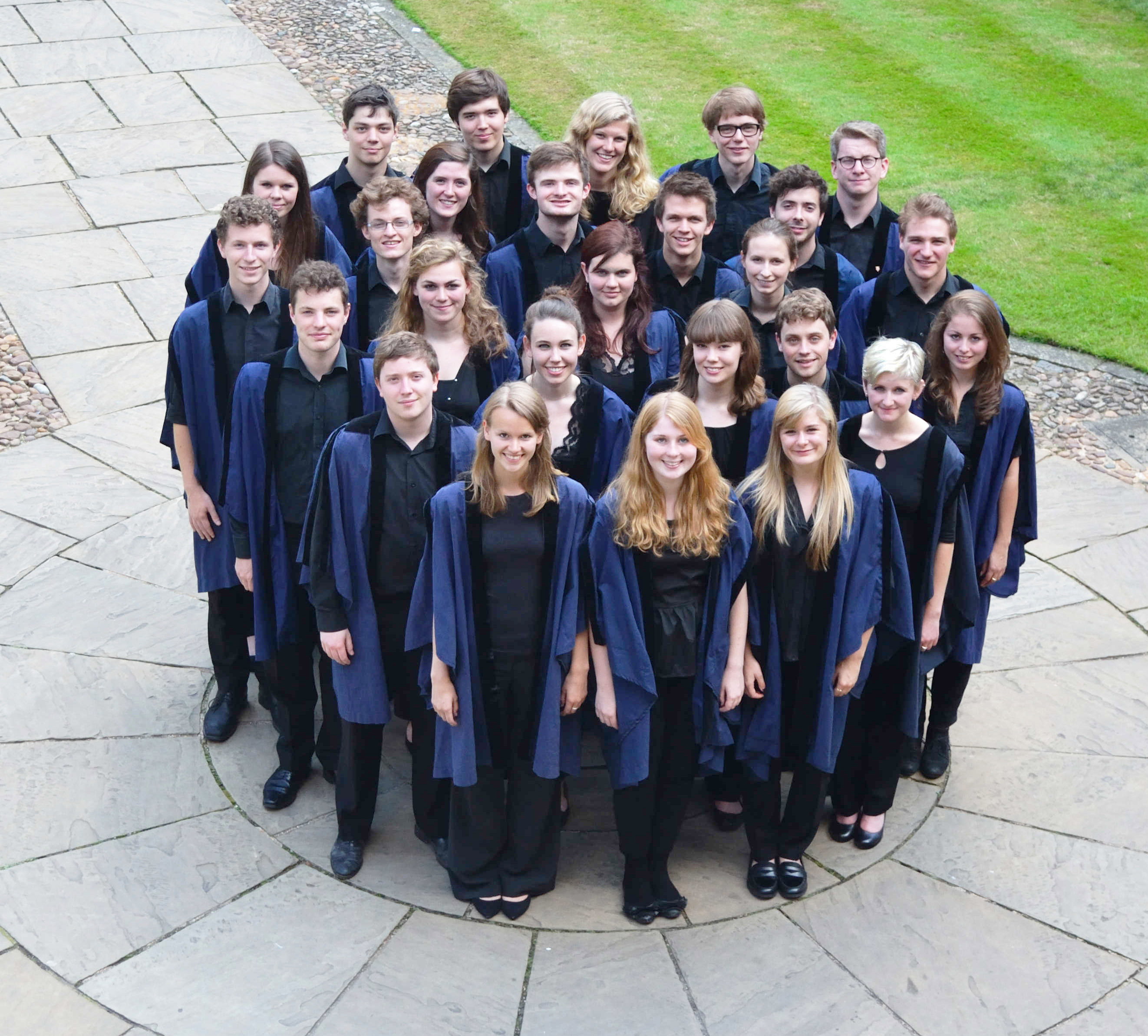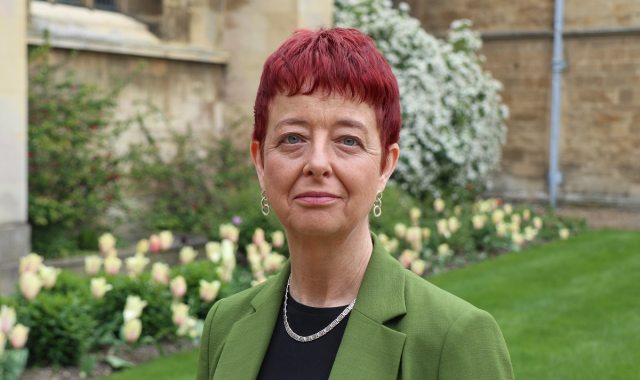Choral Awards
"Impressively well–trained choir and skilled organists … crack Cambridge choristers."
The Independent
When you apply to Cambridge through UCAS you may choose to apply to a particular College. If you apply to Caius and are successful in gaining an academic offer and you would like to apply for a Choral Award, you need to submit your Choral Award application form by 15th February, with Caius as your first-choice choir. Most applicants who are successful in gaining both an academic place and a choral award at Cambridge do so at their first-choice college, so choosing which college to apply to by 15th October is an important step. We hope that the following Q&A section will tell you all you need to know about Caius Choir, and we encourage you to explore other parts of this website to get a better idea of the choir’s activities. If you would like to visit Caius and sing, or have any questions, you can contact us at choir@cai.cam.ac.uk.
Why apply to Caius?
Caius (‘Keys’) choir is one of the finest student choirs in the country, with a world-wide reputation. It would provide you with a superb opportunity to develop your voice for future activity as a soloist or choral singer. The choir works hard to achieve the highest musical standards but maintains a relaxed atmosphere, allowing members to enjoy both the musical and social benefits of choral singing.
How big is the choir and how many vacancies are there each year?
The choir has between 22 and 24 singers. The make-up is in the range of 8-9 sopranos, 4-5 altos (male and female), 4-5 tenors and 4-6 basses. Each year about 6-8 new choral scholars join the choir spread across the voices, so there are always vacancies in all voice parts.
What are financial benefits of being a choral scholar at Caius?
Besides the standard honorarium of £100 (awarded at all Colleges) choral scholars receive free singing lessons and pay nothing to go on foreign tours, at least once and sometimes up to three times per year. Fees are earned for many concerts either as part of the whole choir or in small groups for weddings, conferences etc. Free accommodation and meals are provided for staying in Cambridge out of term for choir activities. A special fund provides money for one-off extra activities such as participating in master-classes.
What vocal tuition would I receive as a member?
You will either receive regular in-house training from one of our three expert singing teachers – David Lowe, Elaine Pearce and Kate Symonds-Joy – or obtain a financial subsidy for an external teacher.
Is there a type of voice that is particularly suited to Caius choir?
No particular vocal characteristics are expected or prioritised. Voices both with and without vibrato are welcomed. Some applicants will have had vocal training and taken grade exams in singing, yet others may have had relatively little vocal training and experience; this factor is taken into account during the auditions.
Is there a typical Caius choir sound or approach to choral performance?
Different repertoires are performed in different styles, and as far as possible we adapt our singing to suit the music. You can listen to samples from our CD recordings on this site or on iTunes. During the course of an academic year the choir grows and develops a coherent and balanced sound, but that sound is often quite different from year to year depending on the constituent voices.
Does the choir have an emphasis on any particular type of choral music?
No, except that each year will tend to have a focus on a particular repertoire in the lead-up to a CD recording. The general approach to repertoire is broad and imaginative. As well as singing the great favourites of the English sacred choral repertoire in our regular services and concerts we sing medieval music, a good slice of continental repertoire from the polyphonic era and more recent times, and secular music at dinners and in concert, including partsongs and arrangements of folksongs and popular music. We also have a particular commitment to commissioning and performing new choral music by today’s leading composers. In addition, most tours and many concerts contain opportunities for performing music one-voice-per-part, in madrigals, motets, close-harmony etc. which is a highly rewarding and engaging manner of singing. Choir members leave with an exceptionally wide experience of choral music.
What it is like to be a member of Caius choir?
For most members of the choir singing is the most important part of their lives outside academic work. During term this means singing in choir five days out of seven, including providing the music for three Chapel services per week, (Sunday: 5pm rehearsal, 6pm service; Monday & Wednesday: 6.05pm to 7pm rehearsal; Tuesday & Thursday: 5.30pm rehearsal, 6.30pm service). In most weeks there will also be a singing lesson. Out of term more varied work takes place, including high-profile concerts, radio broadcasts, tours etc, and the choir also sings at several College Feasts in the year which are great social and gastronomic occasions. Each year the choir elects one of its third-year members to act as a representative to help with the smooth running of the choir, and the Choir Administrator Claire Wheeler helps with varied aspects of choir membership and organisational matters. Choir members read all subjects, though several read Music, and many also play instruments to a high level.
Does the choir collaborate with orchestras and other choirs?
The choir frequently joins with other Cambridge choirs for joint services, such as those of Clare and St John’s Colleges, and has recently made two CD recordings with the choir of King’s College London. The choir also works from time to time with professional orchestras (either on its own or in collaboration with others choirs) such as the Philharmonia, the orchestra of Bordeaux-Aquitaine in France, the Philharmonia Baroque of San Francisco and the Aurora Orchestra.
How have former members of Caius choir gone on to sing professionally?
In most cases choir members have moved on to one of the conservatoires to study singing full-time, whilst a few have preferred to continue lessons privately or forged their own professional careers as singers and teachers. Those who have taken the conservatoire route include Jennifer Johnston at the Royal College of Music, and William Towers, Johnny Herford and Kate Symonds-Joy at the Royal Academy of Music, whilst those whose careers have developed in other ways include Julia Doyle and several members of professional choirs and ensembles such as The Sixteen, Voces8 and founder-members of the group Stile Antico.
How do I apply?
If you receive an academic offer from the College as part of the application process in December/January you can then apply for a choral award by 15th February as explained on the University website. If you are pooled as a result of the application process you should contact the Director of Music for further advice.
How do I prepare for the choral award audition?
Vocal potential and a good ear are the two main qualities being looked for at the audition. You should prepare a piece to sing that you enjoy performing and that feels technically comfortable. Some applicants may already have had considerable experience at sight-reading but others will not, and this is taken into account as part of the application process. For those with limited experience in these areas it is worth trying the sample tests on the University website and spending some time at a keyboard pitching intervals up or down with the octave and picking out notes within a chord.
Can I visit Caius to receive advice about my choral application?
You are welcome to fix a time to sing to the Director of Music at any point during the year either on a separate visit or whilst attending a subject or Caius Open Day. Please email the Director of Music to arrange this. Alternatively you may wish to attend the Open Days for Vocal Guidance in September.
Can I also find out about reading Music?
If you are applying to study Music, you will also be able to discuss this aspect of your application if you visit Caius in advance. Many Music students at Caius sing in the choir.
The Choir in Caius Court


